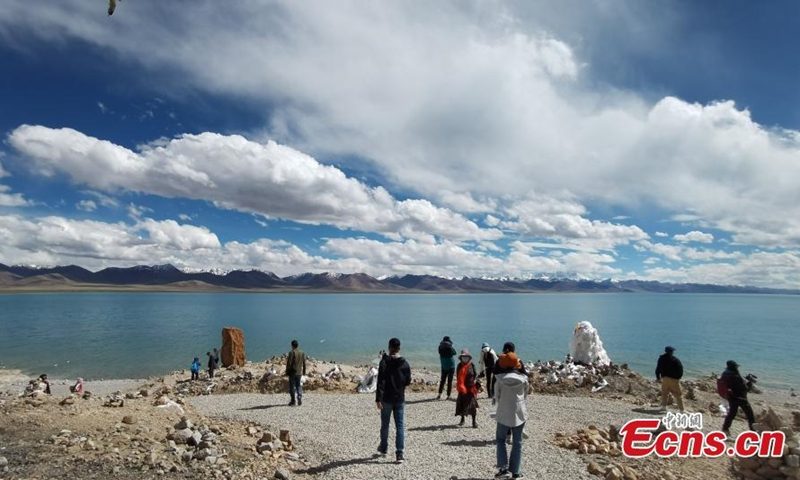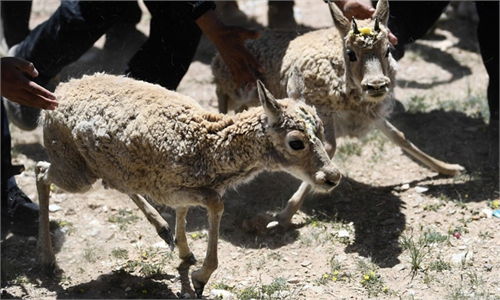China opens largest 'plateau human genetic biological sample bank' in Qinghai-Tibet Plateau

People visit Namtso Lake in Tibet, June 2, 2021. (Photo: China News Service/Chen Xiaoyuan)
The world's largest "plateau human genetic resources biological sample bank" will be open for medical researchers in the Qinghai-Tibet Plateau for the first time, providing strong biological sample support for medical research of "plateau diseases."
The world's largest "plateau human genetic resources biological sample bank" was built by expert teams from Xinqiao Hospital in Southwest China's Chongqing, after it completed a large-scale field study on plateau population of more than 100,000 people in 15 years.
As the sample bank opens to the plateau which has already accumulated more than 100,000 samples, a medical research base specializing on "plateau diseases" with the 953th Hospital of the PLA Army in Shigatse in the Tibet Autonomous Region provided an additional samples reserve of 20,000, according to the Science and Technology Daily on Tuesday.
The sample bank aims to improve the country's medical research and health support capabilities in the plateau. Altitude sickness has always been one of the biggest problems facing people coming to the plateau from low altitude areas.
Jin Jun, a professor from the Department of Cardiology, Xinqiao Hospital, said the plateau diseases have high incidence and could be fatal, but the current technical means to treat it have been limited.
Such sufficient biological support will contribute to the study of altitude sickness in Qinghai-Tibet Plateau, Jin said. The plateau has an average altitude of 4,000 meters, and it's known as the "Roof of the World" and "the Third Pole of the World."
Altitude sickness commonly affects people new to high elevations where there are low amounts of oxygen. It can cause symptoms such as headache, dizziness, and trouble to breathe, sleep and eat. It can also be deadly as altitude sickness affects lungs and the brain.
Global Times


